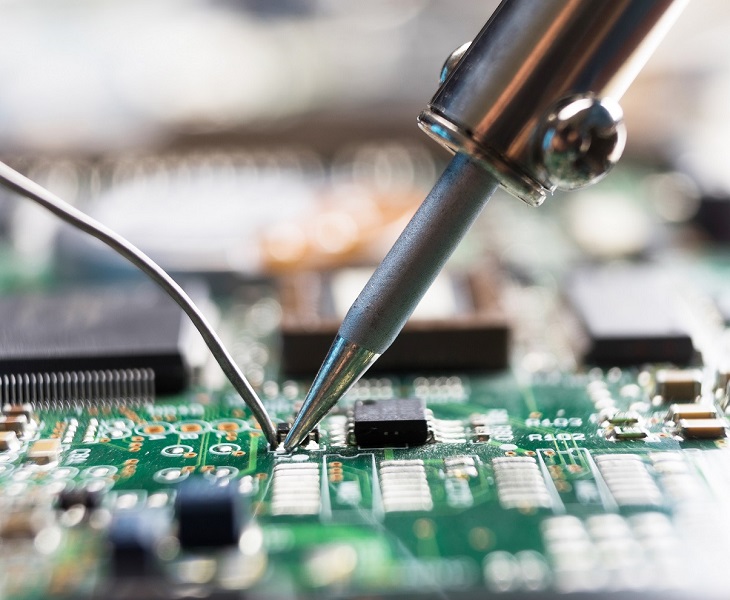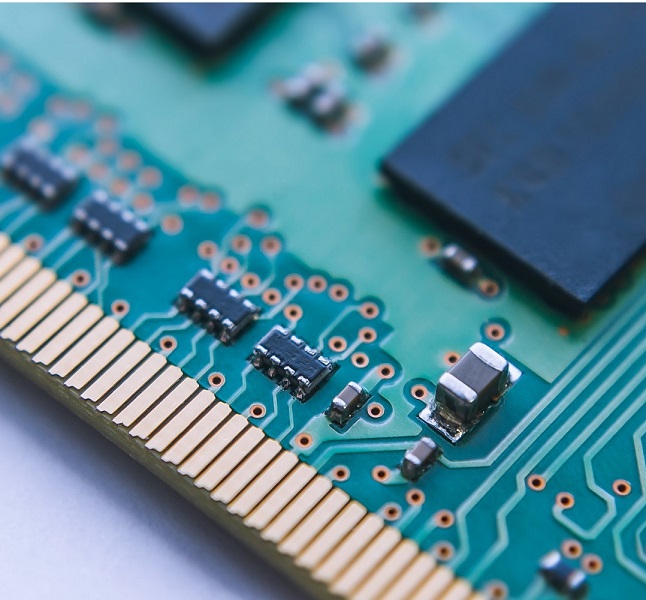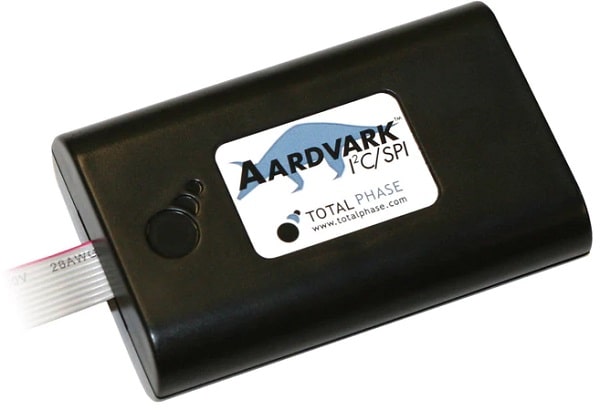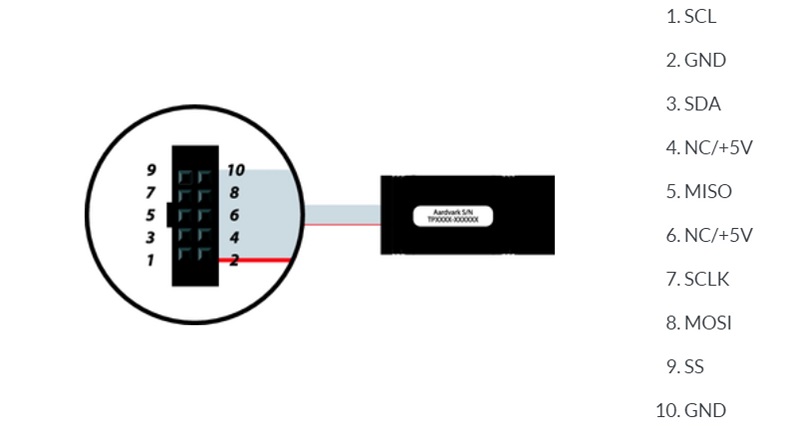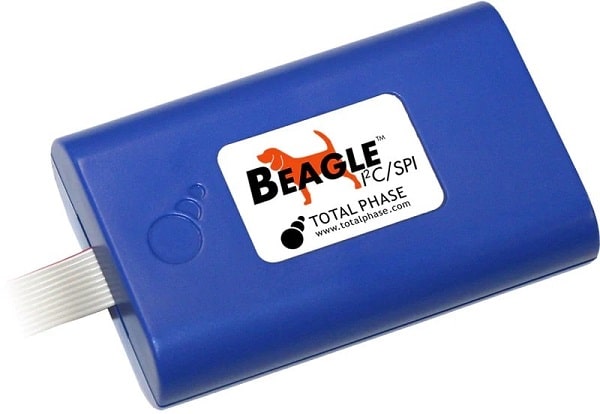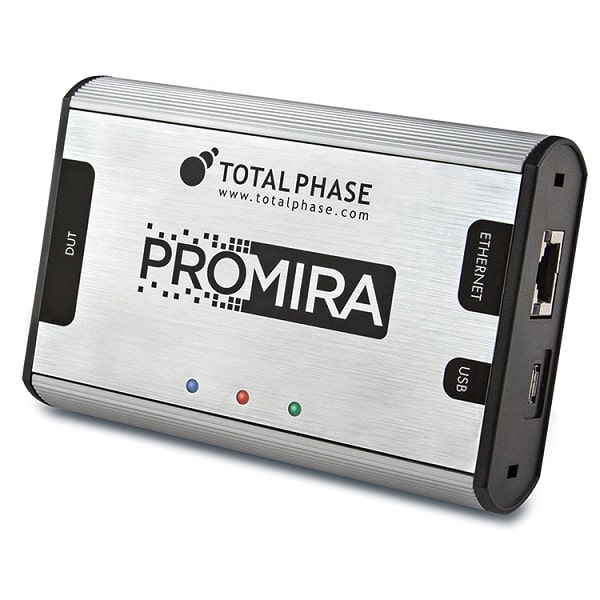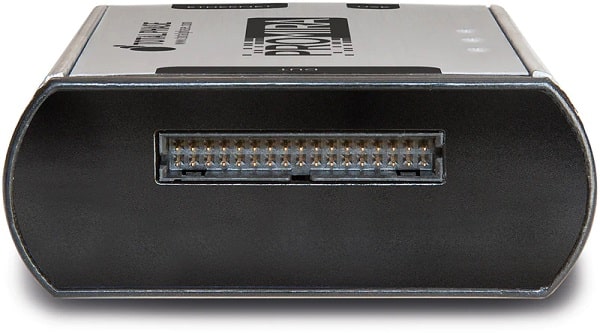
Single vs. Dual vs. Quad SPI | Differences & Similarities
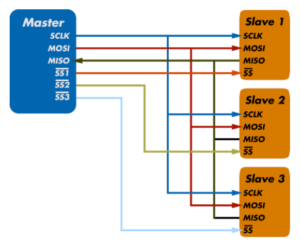
The SPI Bus Protocol
SPI, Serial Peripheral Interface Bus, is a synchronous serial data protocol that was developed by Motorola in the 1970s. The protocol was developed to replace parallel buses and provide high-speed data transfers over short distances.
It is a full duplex protocol that requires four signals: clock, master out / slave in, master in / slave out, and slave select. Data is sent and received at the same time. With SPI, multiple slave devices can be controlled by a single master, and each slave device has its own slave selection line.
The differences between single, dual and quad SPI
Single SPI
Dual SPI
Dual SPI has a dual I / O interface that can double the transfer rates compared to standard serial flash memory devices. The MISO and MOSI data pins operate in half-duplex mode to send two bits per clock cycle. The MOSI line becomes IO0 and the MISO line becomes IO1. The serial dual SPI throughput rates reach around 20 Mbit / s.
Quad SPI
Quad SPI ähnelt Dual, verbessert jedoch den Durchsatz um das Vierfache. Es werden zwei zusätzliche Datenleitungen hinzugefügt, und bei jedem Taktzyklus werden 4 Bits übertragen. Die Datenleitungen sind jetzt IO0, IO1, IO2 und IO3. Die seriellen Quad-SPI-Durchsatzraten erreichen etwa 40 Mbit / s.
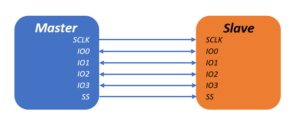
Benefits of Dual and Quad SPI
Multi I / O SPI is particularly useful with memory-intensive data. Compared to classic SPI, in which only one data line is used, dual and quad SPI use two and four data lines, which increases the data throughput two or four times.
Prior to the creation of dual and quad SPI, previous solutions used parallel storage. The parallel memory would use 8, 16 or 32 pin to connect the external storage device to the microcontroller. Compared to parallel interfaces, external flash memory chips can be delivered in smaller packages with dual and quad SPI. These small packages reduce the board space, which simplifies PCB design and reduces GPIOs.
The decision to use Dual or Quad SPI is based on the number of pins and the data rate that developers want to use. Flash chips that support Quad SPI generally support Dual SPI. Single, dual and quad SPI are also pin compatible. Further information on the flash chip can be found in the respective data sheet.
The differences between single, dual and quad SPI
Single SPI
Dual SPI
Dual SPI has a dual I / O interface that can double the transfer rates compared to standard serial flash memory devices. The MISO and MOSI data pins operate in half-duplex mode to send two bits per clock cycle. The MOSI line becomes IO0 and the MISO line becomes IO1. The serial dual SPI throughput rates reach around 20 Mbit / s.
Tools supporting different SPI configurations
The Aardvark I2C/SPI host adapter, Cheetah SPI host adapter, and Beagle I2C/SPI protocol analyzer support SPI Single I/O. The Promira Serial Platform supports ;now single, dual or quad I/O depending on SPI application.



